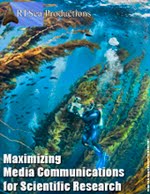A recent study by scientists from the UK's University of Exeter showed that females can live as much as 50 years after the birth of their offspring and the reason for this extended period of menopause is that the presence of mothers ensured the survival of young adults to breeding age.
Reported in BBC Nature News, "In killer whale society, the young never leave their mothers, remaining in a single group. 'With this close association, older mothers have the
opportunity to increase the transmission of their genes by helping their
adult offspring survive and reproduce,' said Dr Croft [who lead the study]. Researchers theorized that living longer in order to protect their sons could represent the wisest investment for orca mothers."
The researchers analyzed over 36 years worth of records regarding various orca families or pods. They determined that orcas who lost their mothers had a 3 to 14 times greater chance, depending on gender, to not survive beyond a year after the mother's death.
However, the big question still remains: What is it that the mother orcas are doing that increases the survivability of their offspring?
"We simply don't know just how mothers are increasing the survival of their adult male offspring," said Dr Croft. "Anecdotal observations suggest that mothers may help adult
sons with foraging or providing support during aggressive interactions. This is one of the things we hope to work on in the future."
So maybe that's why junior continues to bring his laundry home to Mom and raid the fridge. Survivability.
Source: BBC Nature News


















No comments:
Post a Comment